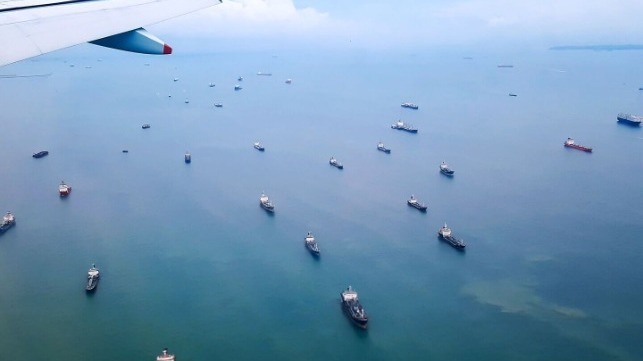TwinShip Project Improves Access to Data for Aiding in Decarbonization

[By: Wärtsilä]
A consortium, including technology group Wärtsilä, will develop a new system for the maritime industry which is aimed at improving access to reliable data to enable smarter shipping decisions related to decarbonising fleet operations. The project, name ‘TwinShip’*, is sponsored by the European Union (EU) and will run from 2025 until 2028.
The need for decarbonisation is well acknowledged in the maritime industry. However, investment decisions are often delayed due to a lack of accurate cost, performance and emission estimations for new and/or retrofitted ship designs. This is especially relevant when it comes to new sustainable fuels and energy-saving solutions.
The TwinShip project will involve over a dozen technology and service providers, ship design and shipping companies, classification societies, ports, software developers, and research and academic bodies. Utilising the expertise of these partners, the project will develop a Decision Support System (DSS) which can be used when planning different setups of machinery, propulsion and energy-saving devices for newbuilds and retrofits.
“Industry collaboration is essential if the shipping industry is to meet its emissions reduction goals, and this TwinShip project is an extremely important initiative that we at Wärtsilä are keen to support,” says Anders Öster, General Manager, Research Coordination & Funding, Wärtsilä Marine. “By working together under this project’s cooperative umbrella we can make a real contribution to a decarbonised future.”
The intention of the project is to provide reliable cost, performance and emission data, based on best possible domain knowledge. This, in turn, will be further improved through advanced AI-based algorithms that can analyse vast amounts of real test data. The project results will be validated through four pilot vessel demonstrations.
The project will set ambitious benchmarks for supporting the industry with its target of reducing Greenhouse Gas (GHG) emissions. These benchmarks will be in line with the 2023 IMO GHG Strategy, which includes a target of net-zero GHG emissions by or around 2050. A central element will be providing access to reliable data and predictive insights that will have a significant impact on optimising fleet efficiency leading to improved performance, lower costs, and reduced emissions.
Wärtsilä has taken a leading position in supporting the industry’s transformation towards a more sustainable future. In addition to its strong investments in developing new high-efficiency technologies, the company is targeting carbon neutrality in its own operations and aims to offer a product portfolio ready for zero-carbon fuels by 2030. The TwinShip project will utilise and build further upon the outcomes of Wärtsilä’s previous and ongoing EU-funded projects, such as SeaTech, CHEK, Green Ray and Ammonia2-4. SeaTech, CHEK, Green Ray and Ammonia2-4.
The products and services herein described in this press release are not endorsed by The Maritime Executive.
